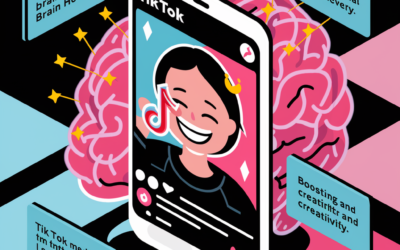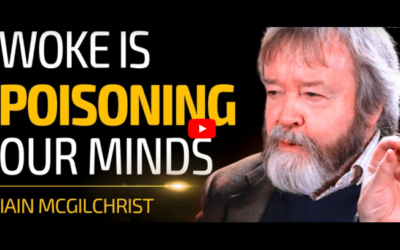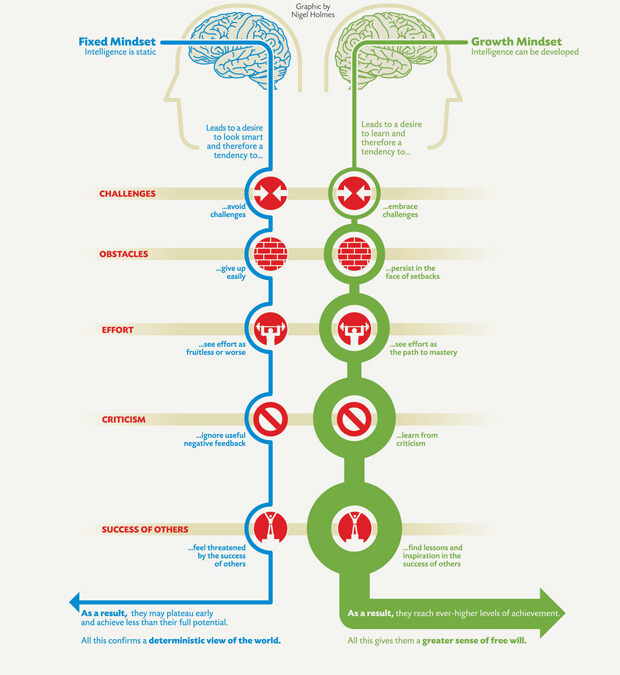
How Your Memories Affect Your Decision Making – Dr. Jordan Peterson
The purpose of memory is to provide you with a map of what to do so that you can be secure Where You Are and maybe more than that so that you can be secure and and gain Advantage.
You know you can get what you need and want from the circumstance that would be even better but you know lots of times you'll just settle for nothing terrible happening. if you can add some additional gain to that so much the better. I know maybe you learn that nothing happens to you in the playground that's upsetting or maybe you learn that it's a great place to make friends and that's even better and then part of exploring the playground would be going out to make friends and hopefully your mother in some sense is somewhat hands off about that so that you can bang yourself up against the world a bit and learn what you need to learn about how to negotiate friendships.
Now let's go back to this guy who's having the murderous fantasies. Now he's humiliated in high school so you ask yourself why well there's a pretty good literature on Bully's bullying and generally bullies poke at all sorts of people and they start with little pokes and if they can get a response that's gratifying to their desire to shame then they'll keep attacking but they start off small and not everybody gets bullied.
Most people get bullied. Some when they're kids but some people are targeted fairly frequently and they're people who tend to react in the manner of the bully wants and perhaps they're also people who don't defend themselves very well when the first pokes occur. They don't have a quick word in response they won't stand up for themselves, they retreat, they get over emotional.
Then you might ask yourself well why would that be?
Well if your mother is operating properly in the playground she's there when you run back and you need her. She's not there behind you when you don't need her making sure nothing bad happens to you and well why?
Because bad things are going to happen to you and what you need to learn is how to deal with that on your own.
That's the best protection your mother can provide in the final analysis is to allow you to be challenged to build competence and that takes a fair bit of forbearance on her part and she has to be willing to let you go out there and make mistakes.
I remember when my daughter was learning. I bought her this monkey bars climb up a ladder cross the ladder down a ladder it was pretty high it was about eight feet I think and she was about three she was out in the backyard learning to climb up these monkey bars it was really interesting to watch her she lift her foot up and lift it up a little higher lift it up a little higher and then she put her foot on the first rung and put a little weight on it and then repeat that then she'd go up to the first rung and then she did that with the second rung I just trial and error right a little foray a little foray a little foray Mastery and then a little higher and a little higher she was it was a fairly High monkey bar for such a little kid but we were watching her and she was doing a good job.
We just let her be and maybe she falls off the monkey bars when she gets to the top and breaks her arm and then aren't you a terrible parent and and the answer to that is Maybe and maybe not too because getting that line between protection and over protection right that's tough.
I'll tell you a little story. Most of you have seen the Disney film Sleeping Beauty and it's a very interesting film very interesting story so the way this story sets itself up at the beginning is there's a king and a queen father and a mother let's say and they're older they haven't had any kids so they're older parents and they really want a child because they're older parents and they haven't had been able to have any kids and so finally they have a daughter they call her Aurora and uh they're pretty thrilled about it and the whole Kingdom has a celebration and it's christening day and they invite everyone in the Kingdom to come except Maleficent which is an interesting word because she's an evil queen but Maleficent means malevolent right it's she's not only that she's it's not only that she's uh she's mother nature in the negative guys she's the tragedy of life that's another way of thinking about it but she's also malevolent so she's also betrayal and catastrophe and cruelty and the king and queen don't invite her to the christening and you think well no wonder do you really want something like that at your child's birthday party are your the christening let's say and the answer is if you don't want that there then you're that and that's a hell of a thing to realize you know because if you don't allow your child to encounter what's negative about the world in measured Doses and even what's malevolent about the world then they don't learn how to weave their way around that or to cope with it.
Both of those are important and then they're laid open to it and then that's on you and you're doing it because you don't want any of that in your child's life you don't want any tragedy, you don't want any malevolence which is why they don't invite her to the evil queen to the wedding and then what happens later in the story well Maleficent says she's going to either kill Sleeping Beauty and that's because people who aren't prepared are more likely to die and or it's modified in the story so that she'll only become unconscious and what does that mean well that's what happens you know to people who can't cope with the catastrophe of the world is that they are tempted by unconsciousness, maybe they want to sleep all the time they want to avoid.
They're afraid to confront anything. they want to shrink back instead of advancing forward and to advance forward in some senses to advance forward with full Consciousness and courage and to shrink back is to wish for unconsciousness and maybe even death and so when Sleeping Beauty hits puberty she falls in love instantly with some guy she meets in the forest which is not really something to be recommended and and uh she falls too hard and too fast for anyone who's sensible and then finds out that that's a love that's not meant to be and she's so catastrophically destroyed by that that Maleficent is able to entice her into unconsciousness and so then she's asleep and she's asleep because the world's too much for her.
She wants to be asleep you know the rest of this story is about I think it's Prince Philip the hero who confronts Maleficent who transforms herself into a dragon and attempts to destroy him and he confronts her successfully and hacks his way through all the Thorns that she's put around the castle and wakes Sleeping Beauty up and you can think about that in a sort of cynical way that this poor unconscious girl needs the hero who's a man to save her from the catastrophe of Nature and malevolence and tragedy but you can also read it psychologically and you can say that it's the Awakening of the spirit of the hero and the conscious willingness to advance in the face of tragedy and malevolence.
That's the proper antidote to the desire for unconsciousness in the face of the vicissitudes of life and you can also read it as a romance because to some degree women who have to take care of infants do depend on men to confront the world and protect them, but it's very nicely read as a psychological story as well and it's accurate.
Now back to the man who wrote me about his fantasies -the parts of his brain that are bringing those memories of being humiliated back are part of an alarm system.
It's the same alarm system that tells you when something unexplored is dangerous and if you're in a social situation and the consequence of being in this situation is that you're being humiliated and undermined, then obviously you haven't mapped out that situation very well.
There might be all sorts of reasons and some of them might not be your fault, but doesn't really matter as far as these alarm systems are concerned because all they're concerned about is the fact that you don't know what to do when you're in that situation and that's not good for you and you can't forget it.
The reason you can't forget it is - what if you're in that situation again?
So the alarm system says:
What if you're in that situation again?
What if you're in that situation again?
What if you're in that situation again?
Often traumatic memories are repetitive for people.
They can't get them out of their minds and then they try to avoid them and that just makes it worse because what you tell the alarm system when it rings the alarm if you try to ignore it is that the alarm is about something so terrifying that you won't even admit to the fact that there's an alarm and so that just makes the alarm go off more and so you try to avoid and well that doesn't work not something sort of akin to Freudian repression.
What I recommended to this gentleman was that he write down all the times he was humiliated. ii's like so you've got these memories that won't let you go. these people who took advantage of you what happened exactly that's hard to figure out right and maybe now he's a little smarter than he was in high school because maybe he's four years older it's like what exactly happened because the memory will have the memory will be emotion Laden but there's a lot of detail around it that's really relevant.
One of the things you can do when you confront a memory like that which is to confront the terrible things that happened to you in the past which is the same as confronting Terrible Things per se is you can ask yourself exactly what happened what exactly what part did I play perhaps and are there things that I could have done earlier or different or is there some manner in which I set myself up for this you know and so I've had clients who are pretty seriously bullied at work and we would go into it and you know as I said it starts with a few pushes and they don't respond and then the bushes get a little harder and they don't respond.
The pushes they'll get a little harder and and then it turns into something.
I had one client who was bullied into psychosis in in high school she was completely fractured by this person who decided to really do her in in a seriously malevolent way because she wouldn't go on a date with him and she had no idea that that kind of malevolence existed and so had been badly prepared in some sense to encounter someone like him.
If you're allowed to bump up against the rough edges of the world the natural world and the social world and if you have someone that you can communicate with this the probability is pretty high that you can learn incrementally how to map the world and your actions in it so that the probability that you're going to be pathologically prone to catastrophe and betrayal is much reduced.
I'll tell you a story about my mother. This one day I was out playing baseball in a abandoned lot empty lot near my house and my wife was there we were only about eight or nine ten something like that, was there with some of my friends one of them was a tough little guy I was little too but not as tough and we're having an argument about something and we're going to have a fight and my mother walked by and my mother is a pretty nice person you know and she had to learn late in life to some degree to stand up for herself when she went back into the workplace and had to confront some relatively intimidating and pushy men and it was hard on her to do that but she was no pushover my mother and she's a good person and she walked by just as this fight was about to emerge and I was not particularly confident of the probability of my uninjured victory in this fight but I was a hell of a lot more afraid that my mother was going to come over and interfere and she didn't but she knew what was happening.
She looked I saw her look I knew she knew she knew I knew and she walked on and it's like more power to her you know and because I was fortunate to have mother like that let's say I got into enough of the sorts of scrapes that teach you how to avoid a certain amount of scrapes and that worked out quite nicely and that's meant my mother was willing to invite malevolence invite the evil queen into my life at least to some degree you know because she knew better than to assume that that could be just dispensed with this program that so this guy that was having these fantasies so he said he's very afraid of the fantasies because they were murderous and I think murderous fantasies when do they emerge well they definitely emerge.
When you've been pushed a hundred times and now you're past anything that vaguely resembles reason and then the fantasy comes up as a manifestation of Rage so I asked him to write down what had happened and also to write down the fantasies you know what is it that you're what reaction is it that you're having now you'd hope that it wasn't like he leapt from happy to murderous in one leap he went through mildly irritated extremely irritated extremely humiliated continually humiliated repeatedly continually humiliated and then well even a few years later into murderous rage and the problem with that is is that you should intervened a lot earlier and so part of what he needed to learn by going back into that memory which was now associated with those murderous fantasies is that the aggression that was manifesting itself in the fantasies hadn't been manifested early enough in the process that led to his humiliation and so then you can imagine well why didn't he react to being bullied in a way that would have stopped it and that's where that might be well he didn't have the skill he didn't have the physical prowess or perhaps he was overprotected I don't know because I didn't know the story but doesn't make any difference because what he needed to figure out was how to take that response and differentiated into something that was reasonably skilled so that the next time someone pulled a stunt that was like the stunts that led to his humiliation in high school he was ready to act.
You can think if a memory that you have that's old well or a problem that's bothering you right now that won't let you go you can look at your fantasies because they'll often give you a clue as to what the appropriate response needs to be not that that's necessarily the response you have to manifest and then the trick is to implement the response in a manner that stops you from falling into the same hole that you fell in many times before these stories that the psychologists students wrote about their past traumas were Curative because if they used words that indicated understanding comprehension Etc then they were remapping the territory that they hadn't mapped properly the first time they walked over it and your your all of you is very much concerned with this your stability and your safety from betrayal and malevolence and the probability that the necessity to avoid unnecessary tragedy.
So any past behavior that indicates that there's a hole in the map that you're using to orient yourself in the world Lets All That Terror shine through and that's what the alarm is and the reason it goes off is because it's saying to you you have a map it's got some bad holes and the holes are places you probably are going to have to go again and so if you go there again and the hole's still there you're going to fall in the hole and the last time you fell in the hole it wasn't good for you and so you should be alert to that.
So that's the reason that memories of that sort won't go away it's actually a good thing although it can be very bad if you don't know what to do about it and it isn't merely a matter of expressing the emotion that's associated with the past catastrophe because often not not only does that not help it can actually make it worse because the mirror expression of your frustration, let's say if you were bullied in high school doesn't stop you perhaps from still being the sort of person that might be bullied by your co-workers and that's not a positive outcome by any stretch of the imagination. So a program we wrote it's sort of like psychotherapy for free essentially, it asks you to and I used it on this client of mine who had been bullied into a psychotic state when she was in high school. She could hardly even talk when she first came to see me and she was hallucinating in all sorts of strange ways. She was really badly fractured by this person who tortured her three-quarters to death and we went through her whole life she could talk a little bit and she could write a little bit and I sat her behind my desk, my computer and we opened this program and what it does is it has you divide your life up into epochs whatever you want maybe it's kindergarten grade one to grade three grade, three to grade six you know, you can do it numerically like that you could do it by age I had people who were more agreeable in temperament they would divide their life up into relationships that was really how they conceptualized the stages of their lives each relationship.
It depends on you. It doesn't really matter however. You conceptualize your life and then the exercise has you walk through and describe significant events positive and negative to lay them out and then to analyze them it's like well what did you do...
Write that enabled the positive events to occur and what did you do that you might be able to alter or that you learned to alter later or that you could alter now that would help you avoid the negative events so it's it's not merely the recounting of the negative it's in some sense it's the extraction of the moral of the story you know there's this old idea I'm sure you've heard me talk about it before the dragon's guard gold it's a very strange idea very old idea Treasure of one sort or another that they threaten the city eternally that's a dragon and the city in some sense is the Citadel of your memory and the chaos that's outside of the Citadel of your memory can always emerge to threaten The Citadel and that's the same story as the Garden of Eden and the snake it's exactly the same idea and if you confront the thing that threatens then you can find the treasure and you can use that to rebuild the Citadel but also to turn yourself into something that can confront the dragon and that's the real treasure right ? is to turn yourself into something that can and is willing to confront the dragon.
I did a lot of work with people in my clinical practice on assertiveness therapy and uh assertiveness training and these are often for people who are very agreeable and they're more likely to be bullied and the reason for that is that they don't like conflict but there's another reason too which is that they don't have enough faith in the truth and enough fear of the consequences of not telling the truth and so they'll pretend that things are all right when they're not all right and then forestall catastrophe for later.
Let's say your boss is kind of a bullying type and pokes at you a bit takes advantage of you a little bit and you think well that's not really worth making a fuss about but you go home and you're kind of resentful but you you don't pay any attention to that.
Maybe you think you shouldn't be resentful but probably you don't think that you just don't want to confront your boss and the thing is though if you do it when if it's on the first foray and you say you know here's the reason I won't do that well maybe you'll get fired but probably not not if you're careful. Generally someone like that will think 'oh you're not as easy to pick on as I thought you were' and they'll go find someone else or maybe they'll even learn something from the encounter you know and then and that takes a fair bit of courage and that's part of that confrontation that we just described is that you're resentful because you've been taken advantage of and you have something to say and so you need to say it.
When I was doing a assertive just training with my clients I often talk to them about their resentment that would be the kind of resentment that might have someone generate murderous fantasies four years later it's people who go out and do murderous things.
They've harbored an awful lot of resentment there's a lot of things they didn't say when they should have said them that's for sure and so you know when if you let the people around you who you love hypothetically take advantage of you then you're going to Harbor resentment and that's going to come out in all sorts of ways that are really not positive in the least for you or for them and so it's better just to have the it's just better to draw the line when it you know when all there is of the Dragon is one tooth say no here's why leave me alone or here's how I want to be treated instead and insist upon that right you draw a line and it's not like that's nothing and then right suggested to this man with murderous fantasies that you think about what he could have done different in high school I mean principle you know maybe he needed to get stronger so he was more confident.
I'm not saying this is easy that's irrelevant lots of things aren't easy that end in catastrophe and the problem was that he was humiliated and now he's murderous and that's not a good outcome. So even if it's difficult that doesn't mean it's unwarranted but even more particularly in a situation like that you ask well how did how did you allow it to come to such a path and what could have you done differently?
And maybe you might find that there wasn't anything that you could do differently back when you were in high school but by the time you're in University you're not in high school anymore and the world shifted quite a bit and generally you're around more sophisticated people and that kind of bullying is less likely and so you still might have some aggression to integrate within you so that you're not a pushover.
If you do that well then those memories in all likelihood are going to stop long as you're confident that now you know what to do. Those memories are very likely to stop plaguing you and then hopefully those murderous fantasies will go away and you won't be inclined to act them out.




























